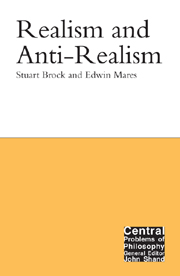8 - Morality
from Part II
Summary
The problem of moral facts and moral properties
A moral fact is a fact such as Don is bad, Helen is good or Stu ought to buy Ed a new house. These facts do not just describe the world, they are normative: they tell us what someone should do. Telling us that Don is (morally) bad tells us that we should not act like Don. We characterize as moral realists those who believe (i) that there are moral facts, (ii) that the same facts are moral facts for everyone, and (iii) that what determines which facts are moral facts is opinion-independent. Moral facts themselves may not be mind-independent. Many moral facts may be about human minds, for example, about whether individuals have good intentions. But what makes them moral facts, according to realists, is independent of what anyone thinks is morally good or bad, that is, they are moral facts independently of anyone's moral opinions.
Before we go on to discuss particular positions in the debate over moral realism, we need to distinguish carefully between the debate over the objectivity of moral claims and moral realism. Moral objectivists claim that the same set of moral rules hold for everyone. Moral realists are moral objectivists, and some use moral realism as a way of defending moral objectivity. But, as we shall see, some moral anti-realists also support moral objectivity. Thus realism about morality is a sufficient condition for being a moral objectivist, but it is not a necessary condition.
- Type
- Chapter
- Information
- Realism and Anti-Realism , pp. 113 - 134Publisher: Acumen PublishingPrint publication year: 2007



